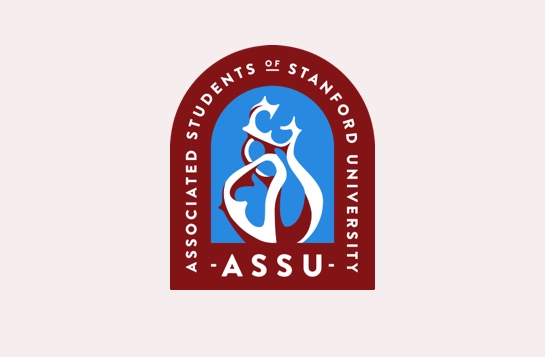Thousands of campaign flyers, dozens of Fizz posts and one executive debate later, preliminary results of the 2023 Associated Students of Stanford University (ASSU) election were announced via email and linked on the ASSU website on Sunday.
Candidates elected in the 2023 election will serve their positions for the 2023-2024 academic year.
While the voter turnout of this year’s general election, at 24.72%, was significantly higher than the previous two years’ turnout of around 17%, turnout has yet to return to 2020 levels when total voter turnout was at 36.64%. This year, 39.44% of undergraduate students and 12.83% of graduate students cast ballots. In 2020, 53.76% of undergraduates and 23.02% of graduates cast ballots.
“We saw an increase in turnout this year from last year, which was one of my big goals, and I think reflective of a lot of engagement on the part of the candidates running — we had more candidates for both UGS and GSC than last year, which certainly helped,” ASSU Election Commissioner Whit Froehlich J.D. ’24 wrote in a statement to The Daily. “There’s still room for improvement, though, particularly among graduate students, many of whom still either don’t know they can vote or just aren’t as aware of ASSU and what it does.”
All grants — four joint annual grants, four GSC annual grants and 129 UGS annual grants — were approved by a simple majority vote. All three annual grant petitions to fund Stanford Mock Trial, Society of Latinx Engineers and Kids with Dreams were also approved.
Executives
Running on a platform of “Fun Strikes Back,” Sophia Danielpour ’24 and Kyle Haslett ’25 were elected by a wide margin of 674 votes, or 18.68% of the total electorate, as ASSU executives over second-place slate Christian Sanchez ’24 and Gurmen Bahia ’24.
With a campaign focused on social life revival on campus, Danielpour and Haslett were the only executive slate where both candidates did not have prior ASSU experience.
Danielpour is the Co-President and former Vice President of Community of the Jewish Student Association and Director of Fellowships of Stanford in Government. Haslett is the Social Chair for the Kappa Sigma fraternity, member of Black Student Union and Captain of the Club Sports Lacrosse team.
All undergraduate and graduate students were eligible to vote for ASSU executives.
Undergraduate Senate
Fifteen students were elected from a 22-candidate race to the 25th Undergraduate Senate (UGS), with Ivy Chen ’26, Divya Ganesan ’25 and Ritwik Tati ’25 (who is a former Daily staffer) earning the most votes. Four of the 15 are incumbents: Tati, Diego Kagurabadza ’25, Joy Molloy ’25 and Ishaan Singh ’24. All undergraduate students were eligible to vote.
Chen, who won 1,096 votes, said she printed over 1,000 posters with her face on them and taped them in dorms and university buildings by herself. She said she attributed her win to the publicity.
“Every spare time I had, I was taping them up,” Chen said. “I would come back at 2 or 3 [a.m.] each night. It was a lot of work, but it was worth it.”
Class Presidents
Undergraduate class president election results were also announced on Sunday. Constituencies for each race were undergraduate students according to corresponding class status.
L.I.F.T. won a four-way contest for sophomore class president, with 51.69% of the final vote share over second-place slate S.O.F.T. The winning slate consists of Pierre Dagsi ’26, Gabby Edelin ’26, Aili McGregor ’26 and Matthew Guck ’26. L.I.F.T., which stands for Late-night Innovation For Trees, focused on “improving all aspects of nightlife on Stanford’s campus,” according to their campaign statement.
RISE won re-election for junior class president, with 57.41% of votes over opponent slate “a new ERA.” RISE’s slate of Shreya Ramachandran ’25, Siddharth Sharma ’25, Blaine Wells ’25, Jason Lin ’25, Veronica Aranda ’25 and Daniel Mottesi ’25 ran on a campaign to “bring back beloved traditions, secure class spaces [and] create communication channels between admin and students.”
The Treehouse won the senior class presidency uncontested, with a slate consisting of Jack Scala ’24, Easha Nandyala ’24, Hannah Basali ’24 (a former writer for The Daily) and Michael Chhay ’24.
Graduate Student Council
The results also showed preliminary results for 15 members of the Graduate Student Council (GSC). All graduate students were eligible to vote for at-large seats.
Ten GSC candidates are elected by plurality vote by school in each graduate school “district,” with winners decided in each of the Graduate School of Business, Doerr School of Sustainability, Graduate School of Education, School of Humanities and Sciences — Natural Sciences, Law and Medicine districts. Two candidates were elected in the School of Engineering. Winners in the School of Humanities and Sciences for both Humanities and Social Sciences districts have not yet been decided.
Five at-large GSC candidates were elected by plurality vote, after elimination of candidates who were elected in their respective districts.
